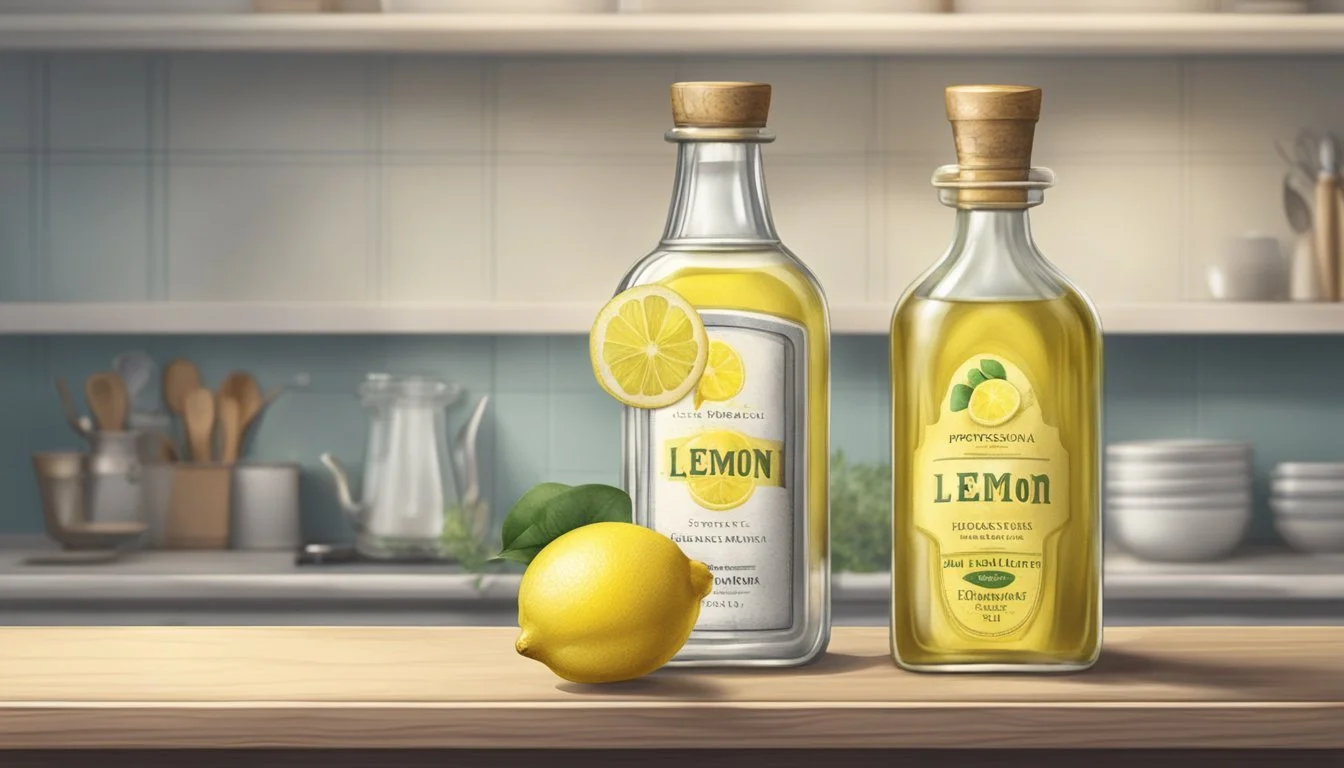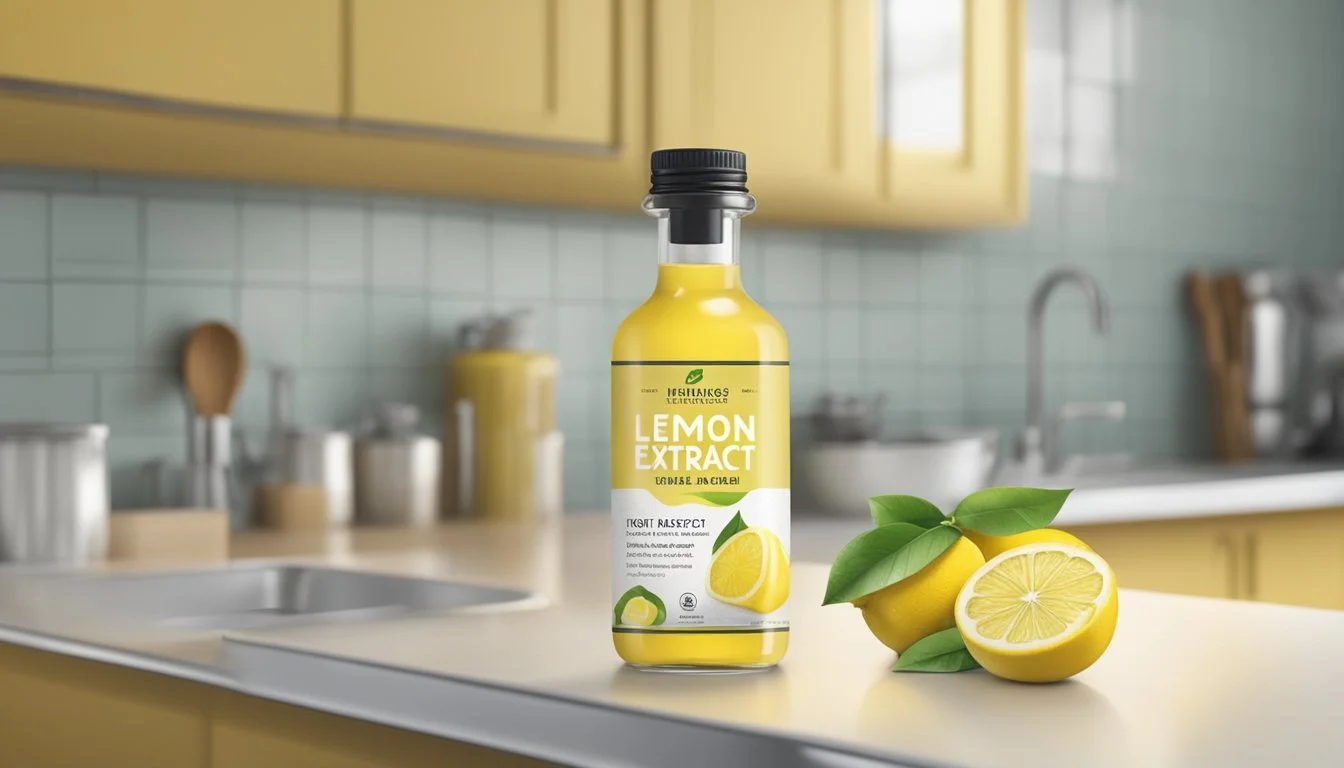Does Lemon Extract Go Bad?
Understanding Shelf Life and Storage
Lemon extract is a staple in many kitchens, treasured for its ability to enhance the flavor of various dishes and desserts. Made primarily from lemon peel and alcohol, it serves as a potent flavoring agent. Lemon extract can last between one to four years, depending on storage conditions, while properly stored extract may not technically expire due to the preservative nature of alcohol. This extended shelf life makes it a convenient and reliable ingredient to keep on hand.
The key to ensuring the longevity of lemon extract lies in proper storage. Keeping the bottle tightly sealed and stored in a cool, dark place away from direct sunlight and heat will help maintain its potency. Over time, the extract may lose some of its vibrant flavor, but it remains safe to use.
While the extract may not spoil in the traditional sense, it is still important to pay attention to its potency. If the flavor seems weak or lacking, it might be time to purchase a fresh bottle. This blog post will explore the best practices for storing lemon extract, signs of reduced potency, and how to determine if your extract is still good to use.
Understanding Lemon Extract
Lemon extract is a concentrated flavoring made from lemon zest and alcohol. It is widely used in culinary applications for its potent flavor and aroma.
Composition and Types
Lemon extract primarily consists of lemon zest, which contains essential oils, and alcohol, which acts as a natural preservative. The high alcohol content helps to dissolve the oils and preserve the extract's flavor and aroma.
There are two main types of lemon extract: pure lemon extract and imitation lemon extract. Pure lemon extract is made directly from lemon zest and alcohol, while imitation lemon extract uses artificial flavors to mimic the taste of lemon.
Culinary Uses
Lemon extract is a versatile ingredient in the kitchen. It's commonly used in baking, adding a zesty note to cakes, cookies, and desserts.
Beyond sweets, lemon extract is an excellent addition to sauces, marinades, and savory dishes. It enhances the flavor of dressings for salads and can even be used to season vegetables and fish dishes.
Homemade Vs. Commercial
Homemade lemon extract is typically made by zesting lemons and steeping the zest in vodka. This method allows for control over the intensity of the flavor and the absence of added preservatives.
On the other hand, commercially bottled lemon extract is often more consistent in flavor and shelf life. These products are convenient and generally have a longer shelf life due to additional preservatives and controlled manufacturing processes.
Both homemade and commercial options have their advantages, and the choice depends on the user's needs and preferences.
Identifying Quality and Freshness
Identifying the quality and freshness of lemon extract requires attention to several factors such as appearance, aroma, flavor, and shelf life indicators.
Appearance and Color
The appearance and color of lemon extract play crucial roles in determining its quality. Fresh lemon extract generally appears clear or slightly cloudy, with a consistent color. Any drastic change in color, such as browning or darkening, can signal that the extract is past its peak quality.
Dark spots or sediment at the bottom may also indicate that the extract has started to degrade.
Aroma and Flavor
Aromas provide essential clues about the freshness of lemon extract. A fresh extract possesses a strong, vibrant lemon aroma.
An off or sour smell can indicate spoilage. Similarly, the flavor should be potent and reminiscent of fresh lemons. Any variation, such as a muted or off-tasting product, may suggest that the extract has lost its potency.
Shelf Life Indicators
Shelf life indicators help determine how long lemon extract remains at its peak quality. Commercial lemon extract typically comes with an expiration date or a best before date. Unopened extracts, if stored properly in a cool, dark place, can last for several years.
Once opened, the extract should be used within a year for optimal freshness. Always check the label for specific storage instructions and safety dates.
By following these guidelines and paying close attention to appearance, aroma, and shelf life indicators, it is possible to determine the quality and freshness of lemon extract accurately.
Storage Best Practices
Proper storage of lemon extract is crucial to maximizing its shelf life. It is essential to maintain favorable storage conditions and choose the right container and location to ensure its quality remains intact.
Optimal Storage Conditions
Lemon extract should be stored in a cool, dark place to prolong its shelf life. Ideal storage conditions involve keeping it away from direct heat, sunlight, and moisture.
Temperatures should be kept stable, with a preference for room temperature environments. Fluctuations in temperature can accelerate the oxidation process, leading to a decrease in quality.
Avoid storing lemon extract near sources of heat like ovens or stovetops, as this can negatively affect its preservation.
Container and Location
Using the right container is vital. Lemon extract should be kept in a tightly closed bottle to prevent air exposure.
A dark cupboard is an excellent choice for storing lemon extract as it shields the extract from light. Light can also accelerate degradation, hence it's best to use containers that are opaque or amber-colored.
If the original container is damaged, transferring the extract to an airtight, dark-colored bottle is advisable. Avoid refrigerators and freezers, as the condensation can introduce moisture, adversely affecting the extract's quality.
Indicators of Deterioration
Lemon extract, like many food products, can degrade over time. It is important to identify the signs of spoilage to ensure it remains safe for consumption. Proper storage can extend its shelf life and maintain its quality.
Spoilage Signs
Spoiled lemon extract often displays distinct signs. One common indicator is an off odor, which might smell sour or musty.
Changes in color, typically darkening or cloudiness, are also red flags. Additionally, the presence of mold or debris indicates the extract has gone bad. If it has lost its potent citrus flavor, this drop in quality suggests it may no longer be fresh or safe to use.
Safety and Consumption
Expired lemon extract's safety depends on the type and extent of spoilage. Using extract with slight color change or diminished aroma usually doesn't pose a health risk.
However, if the extract smells foul or contains mold, it could lead to food poisoning. Consuming spoiled lemon extract can result in digestive issues. It is best to err on the side of caution and discard lemon extract that shows overt signs of spoilage.
Preservation After Opening
To maintain the freshness of lemon extract after opening, proper storage is crucial. Always store it in a cool, dark place such as a pantry and ensure the bottle remains tightly sealed.
Using airtight containers can prevent oxidation. Refrigeration isn't typically necessary but may prolong its shelf life. By following these steps, the quality of lemon extract can be preserved for an extended period.
Leveraging Lemon Extract
Lemon extract offers a versatile way to infuse a distinct citrus flavor into various dishes. It can enhance both sweet and savory recipes, and pairs well with many other flavors to create unique culinary experiences.
Enhancing Recipes
Lemon extract is a potent ingredient for enriching the flavor of baked goods, such as cakes and cookies.
Adding just a teaspoon can brighten the taste of a basic vanilla cake or sugar cookies, giving them a refreshing twist.
In savory dishes, a dash of lemon extract can elevate marinades for chicken and fish, providing a zesty counterpoint to herbs and spices.
Lemon extract is also effective in sauces and dressings. Adding a few drops to a vinaigrette can amplify its freshness, making salads more vibrant.
In brief, it serves as a powerful tool to enhance both sweet and savory recipes alike.
Creating Flavor Combinations
Lemon extract combines well with other flavors to create complex and delicious dishes.
In baking, it pairs wonderfully with berries, especially blueberries and raspberries, to create layered flavors in muffins and tarts.
It also works well with herbs like rosemary and thyme in savory recipes.
A mixture of lemon extract and vanilla in baked goods can produce an elegant flavor that is both sweet and tangy.
For beverages, combining lemon extract with fresh mint or ginger can produce refreshing and sophisticated drinks.
Utilizing lemon extract allows for experimentation with various ingredients, resulting in unique and memorable dishes.







